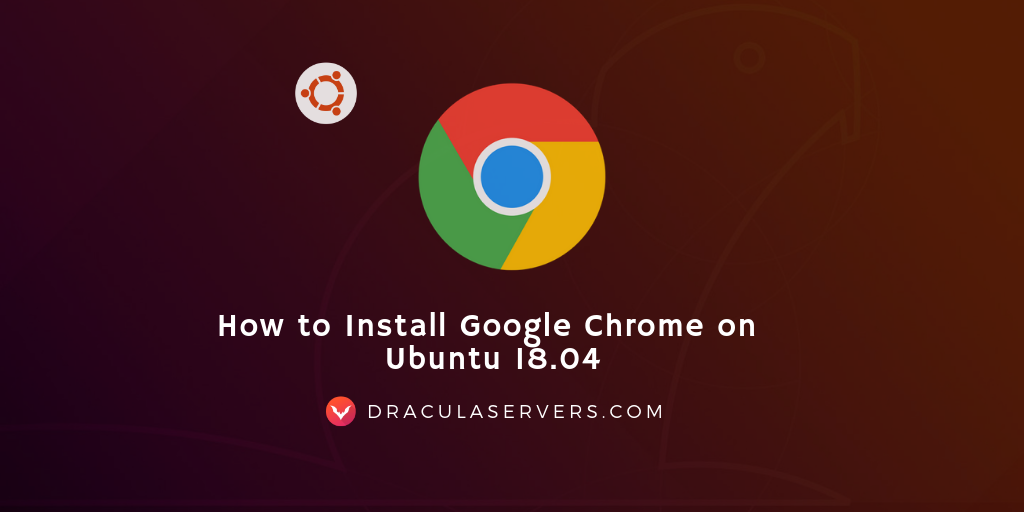How to Install Google Chrome Web Browser on Ubuntu 18.04

Google Chrome is the most popular web browser. It’s slick, fast, and extremely convenient nowadays.
Unfortunately, unlike Chromium, which is open-source, Google Chrome is not in the default Ubuntu repository, so we’ll have to download and install Chrome ourselves.
Prerequisites
- We recommend you use a non-root sudo user when making changes to your system. If you don’t have one set up, you do so by following our tutorial on how to create sudo users.
- Ubuntu 18.04 running on a computer that has a 64-bit CPU. Chrome has been discontinued for 32-bit Linux Systems. We’ll show you how to check this via the command-line.
To check whether you’re on a 64-bit or 32-bit Linux System, you can run the following command in your terminal:
$ lscpuYour output should look something like this:
Architecture: x86_64
CPU op-mode(s): 32-bit, 64-bit
Byte Order: Little Endian
CPU(s): 40
On-line CPU(s) list: 0-39
Thread(s) per core: 2
Core(s) per socket: 10
Socket(s): 2
NUMA node(s): 2
Vendor ID: GenuineIntel
CPU family: 6
Model: 62
Model name: Intel(R) Xeon(R) CPU E5-2660 v2 @ 2.20GHz
Stepping: 4
CPU MHz: 1261.609
CPU max MHz: 3000.0000
CPU min MHz: 1200.0000
BogoMIPS: 4399.61
Virtualization: VT-x
L1d cache: 32K
L1i cache: 32K
L2 cache: 256K
L3 cache: 25600K
NUMA node0 CPU(s): 0-9,20-29
NUMA node1 CPU(s): 10-19,30-39
Flags: fpu vme de pse tsc msr pae mce cx8 apic sep mtrr pge mca cmov pat pse36 clflush dts acpi mmx fxsr sse sse2 ss ht tm pbe syscall nx pdpe1gb rdtscp lm constant_tsc arch_perfmon pebs bts rep_good nopl xtopology nonstop_t
sc cpuid aperfmperf pni pclmulqdq dtes64 monitor ds_cpl vmx smx est tm2 ssse3 cx16 xtpr pdcm pcid dca sse4_1 sse4_2 x2apic popcnt tsc_deadline_timer aes xsave avx f16c rdrand lahf_lm cpuid_fault epb pti ssbd ibrs ibpb stibp tpr_shadow vnm
i flexpriority ept vpid fsgsbase smep erms xsaveopt dtherm ida arat pln pts flush_l1dTo check whether you’ve got a 64-bit or 32-bit CPU, you can check the first line, the value of Architecture. If you see x86_64, then you’ve got 64-bit. If you see i686, then it’s 32-bit.
If you’re using a 64-bit Ubuntu then you can proceed to the following steps.
Install Google Chrome Web Browser via Command-line
To install Google Chrome on Ubuntu, we’ll first download it using wget in the Downloads folder, to keep things clean:
cd ~/Downloads
wget https://dl.google.com/linux/direct/google-chrome-stable_current_amd64.debThe Google Chrome package should be now saved in the ~/Downloads folder:
$ ls
google-chrome-stable_current_amd64.debTo install it, run the following command, while still in the ~/Downloads folder. Don’t forget, that you need to be a sudo user when running it:
$ sudo dpkg –i google-chrome-stable_current_amd64.debThat’s it. You’ve now installed Google Chrome on Ubuntu 18.04.
Uninstall Google Chrome on Ubuntu 18.04
If you want to uninstall Google Chrome off your Ubuntu 18.04 via the terminal, just run the following commands.
This command will remove the Google Chrome installation:
$ sudo apt-get purge google-chrome-stableThis command will remove Chrome’s settings, such as any plugins you might have installed when using it:
$ rm ~/.config/google-chrome/ -rfConclusion
Well done. You’ve learned how to install Google Chrome on Ubuntu 18.04, as well as uninstall it. As you’ve seen, it’s not very difficult to do it via the command-line.
Though we have not covered it,you can also install it via the GUI, by just visiting the Google Chrome download page, downloading it, double clicking the .deb package, and following the install steps.
If you’re in the market for affordable Linux KVM VPS with high specs, then be sure to check our KVM VPS Plans. They start at 1GB RAM at just $9.99/mo.
Subscribe
Login
0 Comments
Oldest

